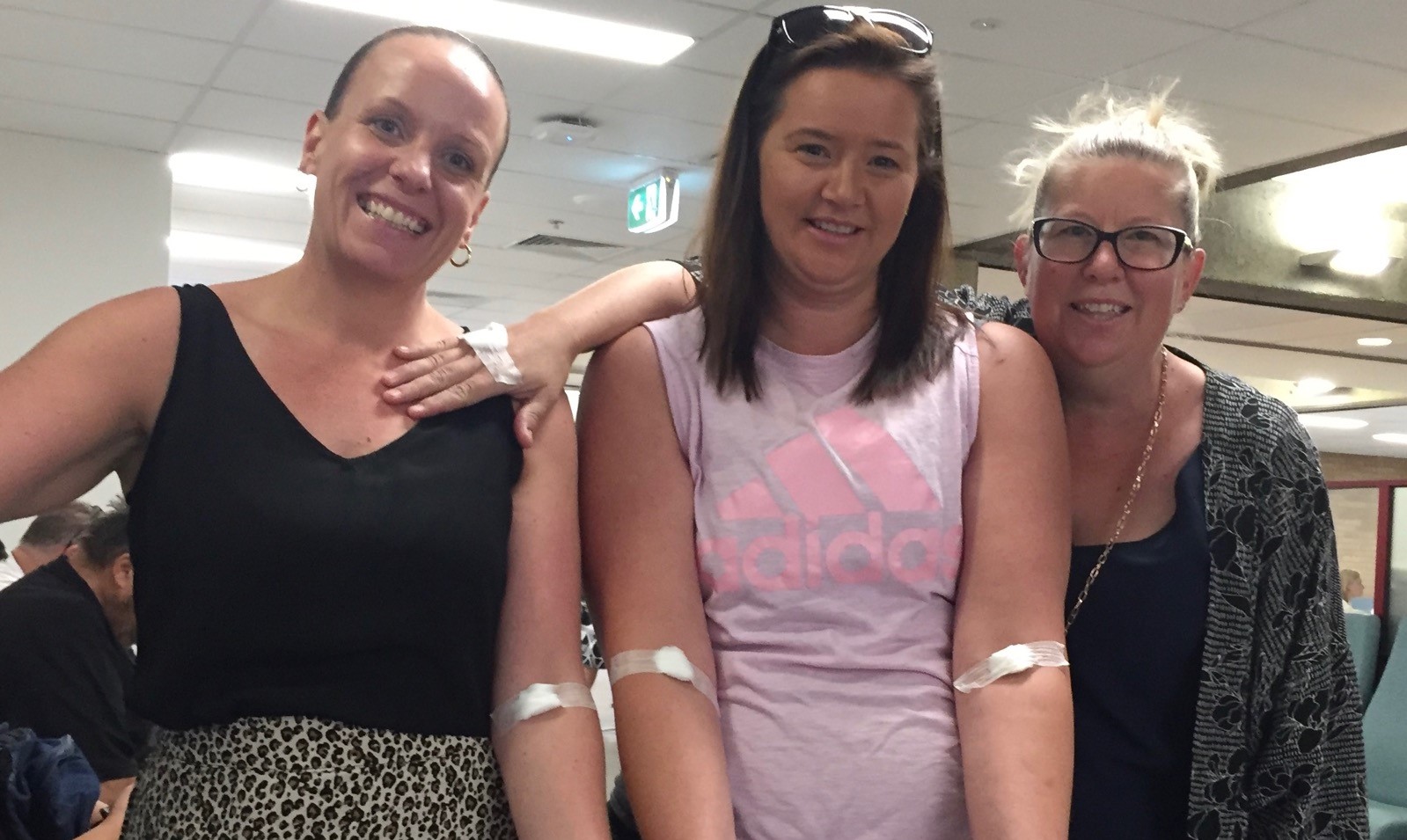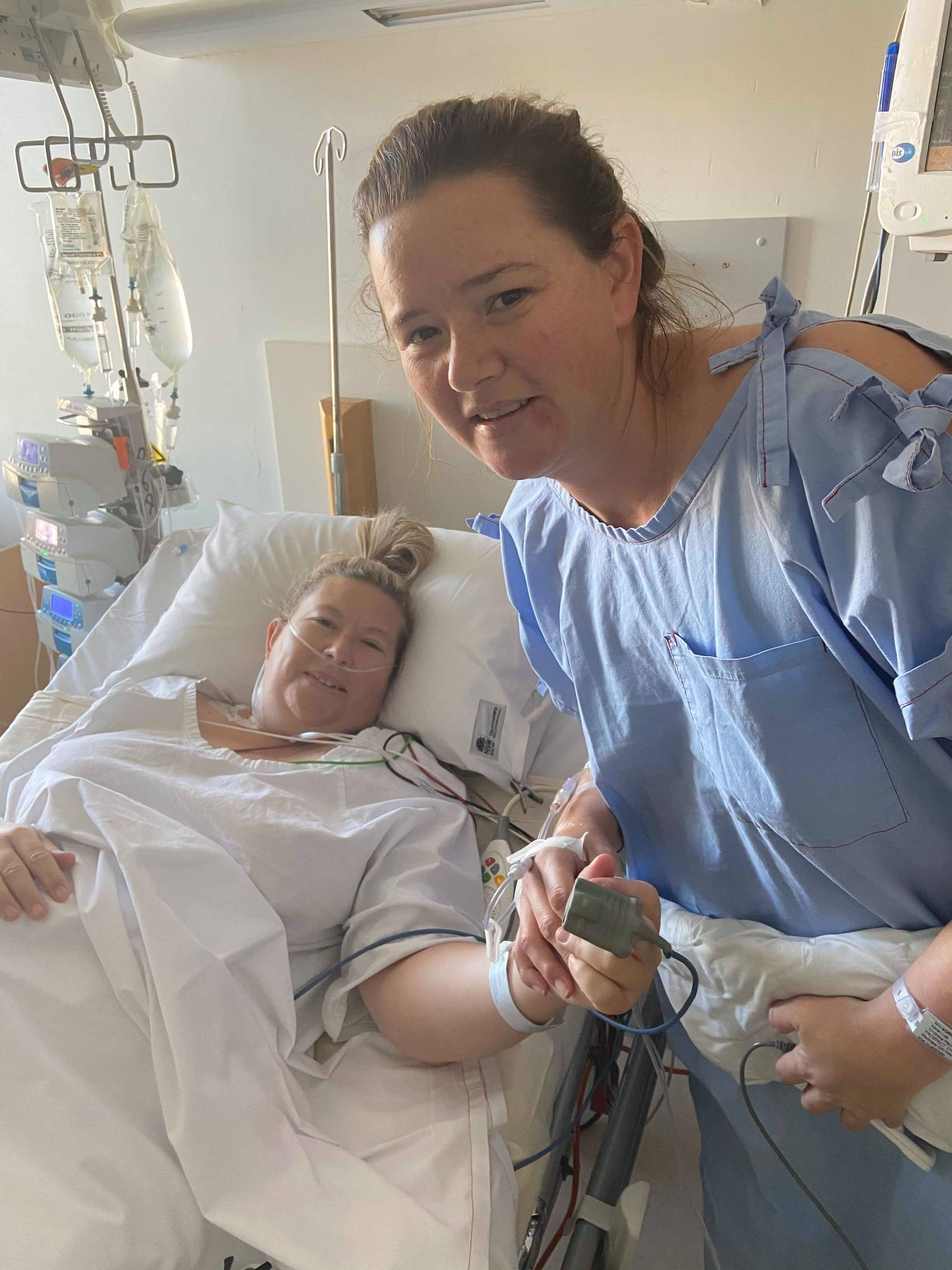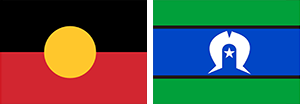26 November 2021
Hume employee shares organ donation story to start life-saving conversations

Hume Community Housing employee, Karen Norris, is hoping that by sharing her organ donation story it will encourage others to talk to family and friends about organ and tissue donation.
Karen is Hume’s Manager, Housing and Community Western Metro, where her job is focused on leading her team to help others secure a safe and secure home. But at the end of 2019, Karen’s personal challenge was to save her sister’s life by donating one of her kidneys.
Karen’s late father, Stanley Charles, had a genetic kidney disorder – called polycystic kidney disease – which put him on daily dialysis. He eventually had a successful transplant in 1997, gifting him more years with his family.
Unfortunately, Karen’s sister Debbie went on to develop the condition placing her on a transplant waiting list. Over Easter 2019, Debbie’s body started to reject the dialysis she needed to survive. So when Westmead Hospital held a transplant information session, Debbie’s best friend and Karen elected to see if either were a match. Tests followed and on Christmas Eve 2019 Karen received the news match looked positive.
Karen remembered her sister said: “What a great Christmas gift – a sign of hope for a brighter future!” 
In March 2020 both Karen and Debbie were placed on the Kidney Exchange Program – a database of people experiencing kidney failure with a living donor, which may not be a match for them but could be for another, a bit like a match-making service.
After more tests, in June 2020, when NSW elective surgery was placed on hold due to COVID-19, the doctors announced that Karen held the “golden ticket” kidney.
The surgery occurred at Westmead on 20 July 2020, the day of their father’s birthday,
“To me it was like someone upstairs was looking after us, so it was comforting. Even one of my nurses for the surgery was called Charles, like my dad’s middle name,” said Karen
Despite these positive signs, the day of the surgery was challenging Karen said.
The hardest thing for Karen was saying goodbye to her children before she went into hospital.
It was a reasonably quick process, with Karen in hospital for four days. As for the operation, the worse thing according to Karen was the gas that had to be pumped into her abdomen to inflate it so the kidney could be removed via laparoscopic surgery.
“That was the most painful part, but surprisingly it hurt my shoulders more than anything else. It was more emotionally difficult,” she said.
Ultimately the surgeries were a great success for the sisters, and now Debbie is thriving, although will have to take anti-rejection drugs for the rest of her life.
“My sister is feeling so much better and getting her life back,” said Karen. Karen put a shout out to the team at Hume “They were amazing. Not only with the time off I needed, but the calls I received from Executives and team members weekly, checking in on my progress and my sister’s health meant we felt truly supported by my workplace.”
Karen encourages families to have organ donor conversations but appreciates these can be difficult decisions and discussions.
“I encourage everyone to talk with friends and families and think about what’s on your driving licence. Elect to donate because while a life may be lost, other lives can be saved,” concluded Karen.
For more information about organ donation visit https://www.healthdirect.gov.au/organ-and-tissue-donation
Photo captions:
Top: Karen's sister's best friend Debbie, Karen and her sister Debbie
Right: Karen meets her sister in the hopsital after the operations are complete and successful


